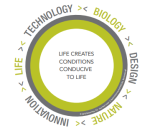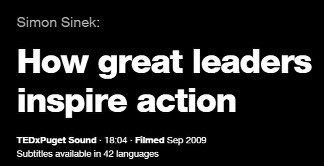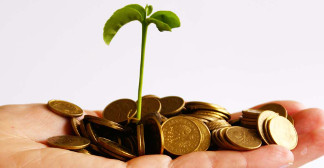What is this thing called “business”?
“Business doesn’t listen!” is a regular complaint that I hear in environmental circles – but what IS business? Essentially, business is a group activity – a process. There is no physical thing called business that we can put in a wheelbarrow. We may be able to put a building, a product, a machine or a person in a wheelbarrow – but not “business”.
At its essence “business” is a process performed by groups of people working together to exchange what they perceive as valuable:
- Time and energy in exchange for wages (comfort and security), belonging or achievement.
- Products or services in exchange for money, satisfaction, belonging or achievement.
Sometimes the processes of business work well, sometimes they don’t. Many of the key performance indicators for business are past-based, short-term measures based on partial understandings of the economic and ecological environment – yet it’s these measures that often drive reward systems.
Research indicates that just 1-2% of the population has psychopathic potential. Even if we double or triple this number, it still means that there’s a substantial majority who are fairly normal people, operating as best they can inside their understanding of the world and how it works. From this perspective, the question for sustainability advocates is “how do we shift people’s’ understanding of the world and how it works?”
There is no “business” to influence – only people…
While we perceive business as a monolithic, uncaring machine we can feel powerless to shift it. But business IS people – mostly operating from day-to-day on their past experience of how the world works.
Within “business” are individuals doing their best to meet their wants and needs inside a system of beliefs and rewards largely developed when business was considered to operate within an infinite eco-system. Surprisingly few of those people have been trained to think strategically, how to lead effectively, how to communicate skillfully or how to live intentionally.
If “business” doesn’t exist, then sustainability advocates need to influence people – they need to engage with specific people in positions of influence and work to shift their understanding of the world and how it works.
Fortunately, over the past 30 years we have developed a wealth of knowledge and tools to assist us in the process of influencing and communicating. Fields like Linguistics, NLP , neurobiology and Ontology (to name just a few) have codified not only how language works, but also the underlying perceptual systems, moods and emotions that generate human behaviour.
During the same period, smart entrepreneurs have been disproving some of the beliefs and understandings prevalent about “the environment” in business – so sustainability advocates now have a compelling offer to make to business about the world and how it works:
“Sustainability is about more than unwanted costs and boring compliance – it’s also about opportunity and profitability. Done strategically and integrated into core business activity it’s a great way to develop better business processes, products, services and products.”
Who could you influence?
Who is the most influential person you know – the person that could make the most difference if they “got” the opportunity side of sustainability? How could you influence them? What are you saying to yourself that might stop you trying? Are you:
- Resigned to the belief “Sustainable practices will cost them, so they won’t listen to me”? (In which case is it time for you to learn about regenerative business – the opportunity side of sustainability?)
- Anxious that “I’ll look stupid and naive” or “I won’t know what to say”? (In which case, is it time to learn the smart conversational skills of influencing and innovation?)
- Angry and resentful that “They’re doing so much damage”? (In which case, is it time to focus your outrage on effective action towards the result that you DO want?)
What would you need to know, feel, think and do to engage this influential person that you know more effectively?
If you want to be a successful change-maker, there are skills to learn which will increase your capability to make a difference. Understanding what business is and how to influence it is all about the “soft stuff” of communication, engagement and influencing.
If your back hurts, you get it re-aligned and develop your core strength so you can stand and move differently. If you’re tired of living in frustration, anxiety, resignation and resentment then it may be time for a different sort of re-alignment and development program.




